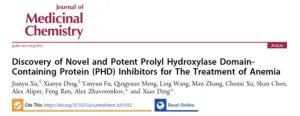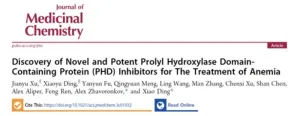(Press-News.org) One in three children who suffer from bacterial meningitis live with permanent neurological disabilities due to the infection. This is according to a new epidemiological study led by Karolinska Institutet and published in leading medical journal JAMA Network Open.
For the first time, researchers have identified the long-term health burden of bacterial meningitis. The bacterial infection can currently be cured with antibiotics, but it often leads to permanent neurological impairment. And since children are often affected, the consequences are significant.
"When children are affected, the whole family is affected. If a three-year-old child has impaired cognition, a motor disability, impaired or lost vision or hearing, it has a major impact. These are lifelong disabilities that become a major burden for both the individual and society, as those affected need health care support for the rest of their lives," says Federico Iovino, associate professor in Medical Microbiology at the Department of Neuroscience, Karolinska Institutet, and one of the authors of the current study.
By analyzing data from the Swedish quality register on bacterial meningitis between 1987 and 2021, the researchers have been able to compare just over 3,500 people who contracted bacterial meningitis as children with just over 32,000 matched controls from the general population. The average follow-up time is over 23 years.
The results show that those diagnosed with bacterial meningitis consistently have a higher prevalence of neurological disabilities such as cognitive impairment, seizures, visual or hearing impairment, motor impairment, behavioral disorders, or structural damage to the head.
The risk was highest for structural head injuries - 26 times the risk, hearing impairment - almost eight times the risk, and motor impairment - almost five times the risk.
About one in three people affected by bacterial meningitis had at least one neurological impairment compared to one in ten among controls.
“This shows that even if the bacterial infection is cured, many people suffer from neurological impairment afterwards,” says Federico Iovino.
With the long-term effects of bacterial meningitis identified, Federico Iovino and his colleagues will now move forward with their research.
“We are trying to develop treatments that can protect neurons in the brain during the window of a few days it takes for antibiotics to take full effect. We now have very promising data from human neurons and are just entering a preclinical phase with animal models. Eventually, we hope to present this in the clinic within the next few years," says Federico Iovino.
The research was funded by Merck & Co (in Sweden MSD).
Facts:
Bacterial meningitis is a rare but very serious infection that can affect people of all ages, but is most common in newborns, children and adolescents, and the elderly. It is often caused by pneumococcus (Streptococcus pneumoniae) which is also a major cause of bacterial respiratory infections such as pneumonia, otitis and sinusitis, which also mainly affect the youngest and oldest members of society.
Untreated, bacterial meningitis is fatal, but the infection can now be cured with antibiotics. However, antibiotics have difficulty penetrating the blood-brain barrier, which means that it takes time to fight the infection. During this time, nerve cells can be damaged and result in various permanent neurological damage. Furthermore, there is the constant threat of antibiotic-resistance to face in the clinics.
Source: Federico Iovino, Public Health Agency and Centers for Disease Control and Prevention.
Publication:
"Increased Risk of Long-term Disabilities Following Childhood Bacterial Meningitis in Sweden" Salini Mohanty, Urban Johansson Kostenniemi, Sven Arne Silfverdal, Stina Salomonsson, Federico Iovino, Eric M. Sarpong, Goran Bencina, Gustaf Bruze. JAMA Network Open online January 19, 2024, doi:
END
Bacterial meningitis damages one in three children for life
2024-01-19
ELSE PRESS RELEASES FROM THIS DATE:
McMaster researchers create instruction manual to detect rare cells that could unlock secrets to allergies
2024-01-19
Researchers with McMaster University have created the instruction manual that will help scientists across the globe find hard to detect B cells.
Led by PhD student Alyssa Phelps and Department of Medicine Assistant Professor Josh Koenig, researchers wanted to chart a path to finding these cells as part of their work in understanding food allergies. Their work was published in the journal Nature Protocols on Jan. 19, 2024.
B cells are a type of immune cell that makes antibodies. These cells help fight conditions like cancer and infections but can also cause autoimmune diseases and allergies.
"One of the big problems with trying to study these B ...
Rice’s Amanda Marciel wins NSF CAREER Award
2024-01-19
HOUSTON – (Jan. 19, 2024) – Amanda Marciel describes her current research, supported by a CAREER Award from the National Science Foundation, as an effort to understand and make “really soft, stretchable stuff.”
Expressed more formally, she works at the molecular level to design branch elastomers that return to their original shape after being stretched.
“What I’m doing is creating synthetic networks that have a gel-like softness and are highly elastic for such applications as stretchable ...
JMC|Insilico Medicine nominates novel AI-driven PHD inhibitor targeting anemia
2024-01-19
Clinical stage generative artificial intelligence (AI)-driven biotechnology company InSilico Medicine (“InSilico”), today announced that the Journal of Medicinal Chemistry, an ACS Publications journal focusing on critical studies about molecular structure and biological activity, has published the company’s discovery of a novel PHD inhibitor for the treatment of anemia. The academic breakthrough is powered by Chemistry42, its proprietary generative chemistry platform consisting of more than 40 selected generative models.
As suggested in previous studies, the inhibition ...
JMC | Insilico Medicine presents the discovery of the potent and selective MYT1 inhibitors for the treatment of cancer through generative AI
2024-01-19
Insilico Medicine(“Insilico”), a clinical stage generative artificial intelligence (AI)-driven drug discovery company, recently published an early research that it has identified MYT1 as a promising new therapeutic target for breast and gynecological cancer, and discovered a series of novel, potent, and highly selective inhibitors specifically targeting MYT1. These findings were supported by Insilico’s AI-driven generative biology and chemistry engine and published in the Journal of Medicinal Chemistry in Dec 2023.
Across ...
Professors Yoon-Kyoung Cho elected as Member of National Academy of Engineering of Korea!
2024-01-19
Professor Yoon-Kyoung Cho from the Department of Biomedical Engineering at UNIST has been elected as a member of the National Academy of Engineering of Korea (NAEK), the most prestigious organization in the field of engineering in Korea.
On January 4, the National Academy of Engineering of Korea (NAEK) announced the election of 50 new members, comprising 25 academic and 25 industrial figures, in recognition of their distinguished and ongoing achievements in original research. Membership in NAEK is considered one of the highest professional distinctions for engineers. Professor Cho’s name appeared ...
New study reveals critical role of FAM3c in breast cancer progression
2024-01-19
A groundbreaking study conducted by Professor Jiyoung Park and her research team in the Department of Biological Sciences at UNIST has identified FAM3C, a metabolism-regulating signaling molecule produced by cancer-associated adipocytes (CAAs), as a key regulator of breast cancer progression within the tumor microenvironment (TME). The findings, published in the prestigious academic journal Cancer Research, shed light on the potential for targeted therapies in the treatment of breast cancer.
The study demonstrates that overexpression of FAM3C in cultured adipocytes significantly reduces cell death in both adipocytes and co-cultured breast cancer ...
New medicine can create a new life for diabetes patients – without needles!
2024-01-19
There are approximately 425 million people worldwide with diabetes. Approximately 75 million of these inject themselves with insulin daily. Now they may soon have a new alternative to syringes or insulin pumps. Scientists have found a new way to supply the body with smart insulin.
The new insulin can be eaten by taking a capsule or even better, within a piece chocolate.
Inside these we find tiny nano-carriers to which the insulin is encapsulated. The particles are 1/10,000th the width of a human hair and so small that you cannot even see them under a normal microscope.
“This ...
Miami Cancer Institute publication analyzes role of tissue-agnostic therapies for the treatment of primary brain tumors
2024-01-19
MIAMI, FL – January 19, 2024 – Researchers from Miami Cancer Institute, part of Baptist Health South Florida, today published a study in Trends in Cancer that analyzes the use of tissue-agnostic therapeutics in patients with primary brain tumors (PBTs). The publication describes the current and potential impact of tissue-agnostic therapies on the management of PBTs. As part of the publication, the researchers discuss data from clinical trials of tissue-agnostic targets for PBTs in the context of challenges in managing these tumors. They also describe additional tissue-agnostic ...
Discovery unravels the mystery of a rare bone disease
2024-01-19
A McGill-led team of researchers have made an important discovery shedding light on the genetic basis of a rare skeletal disorder. The study, published in Nature Communications, reveals that a defect in a specific gene (heterozygous variants in the matrix Gla protein, or MGP) may cause a disorder that affects the structure of connective tissues that supports the body.
MGP is a special protein found in blood vessels and cartilage that helps prevent the hardening of these tissues in the body. If MGP is completely missing, it can lead to Keutel syndrome, a rare condition where tissues become calcified, causing issues in the skeleton and blood vessels.
However, in this case, ...
Infantile spasms: Speeding referrals for all infants
2024-01-19
Infantile epileptic spasms syndrome (IESS), often called infantile spasms, is the most common form of epilepsy seen during infancy. Prompt diagnosis and referral to a neurologist are essential. But research suggests infants are likely to experience delays in referral to a neurologist if their families are from historically marginalized racial/ethnic backgrounds. A new open-access training module for front-line providers from OPENPediatrics, an online learning community launched by Boston Children’s Hospital, aims to change that.
The free, publicly accessible Infantile Spasms curriculum includes short lectures and videos illustrating ...






